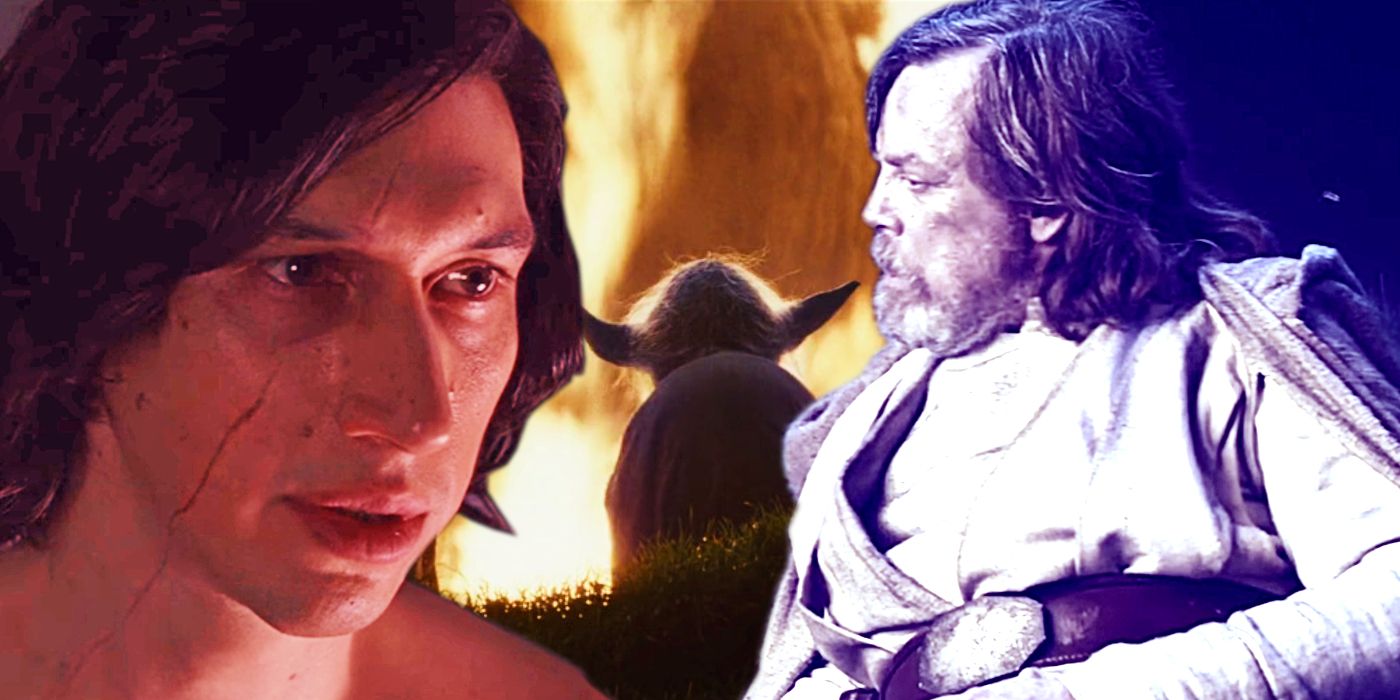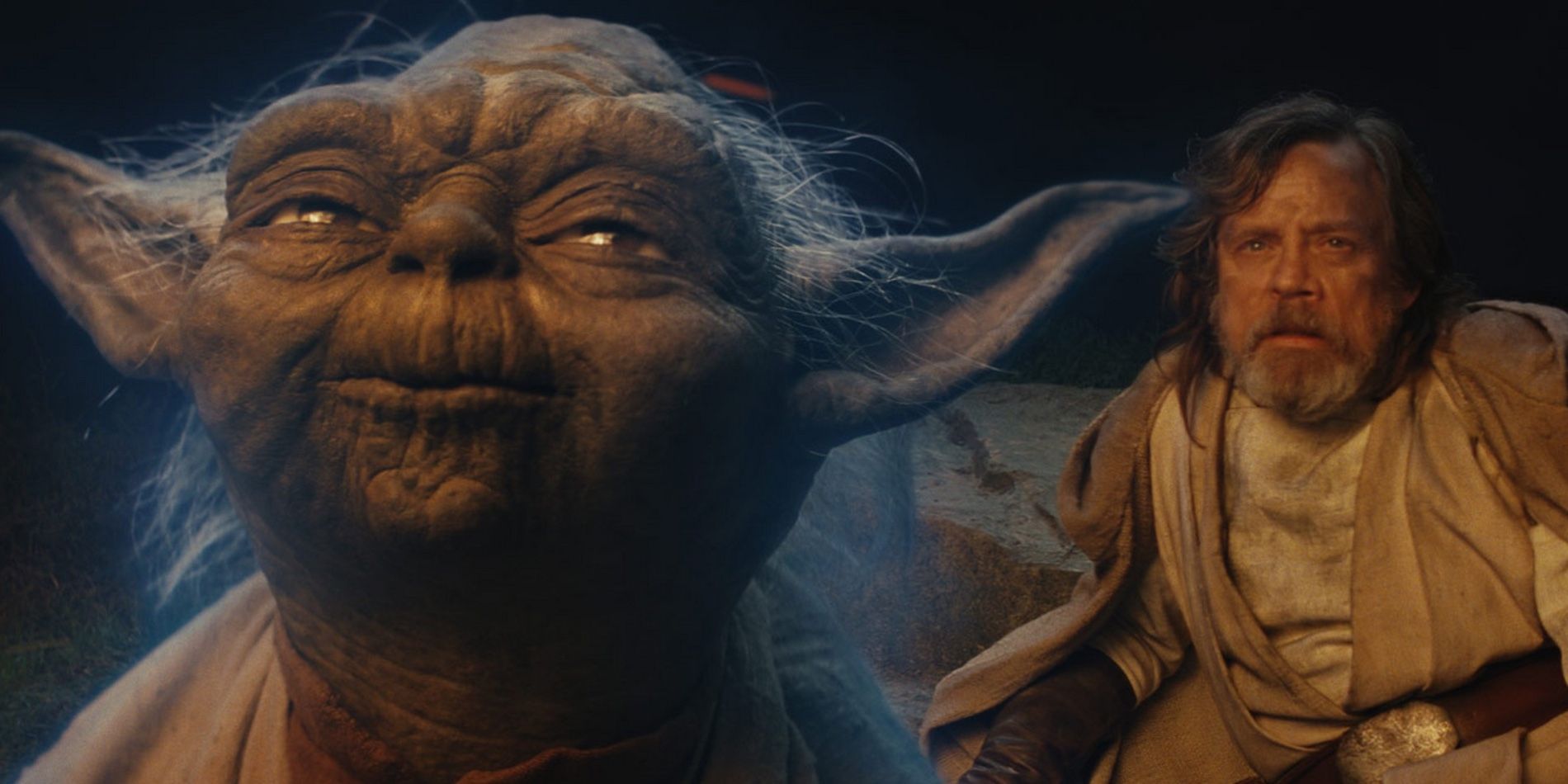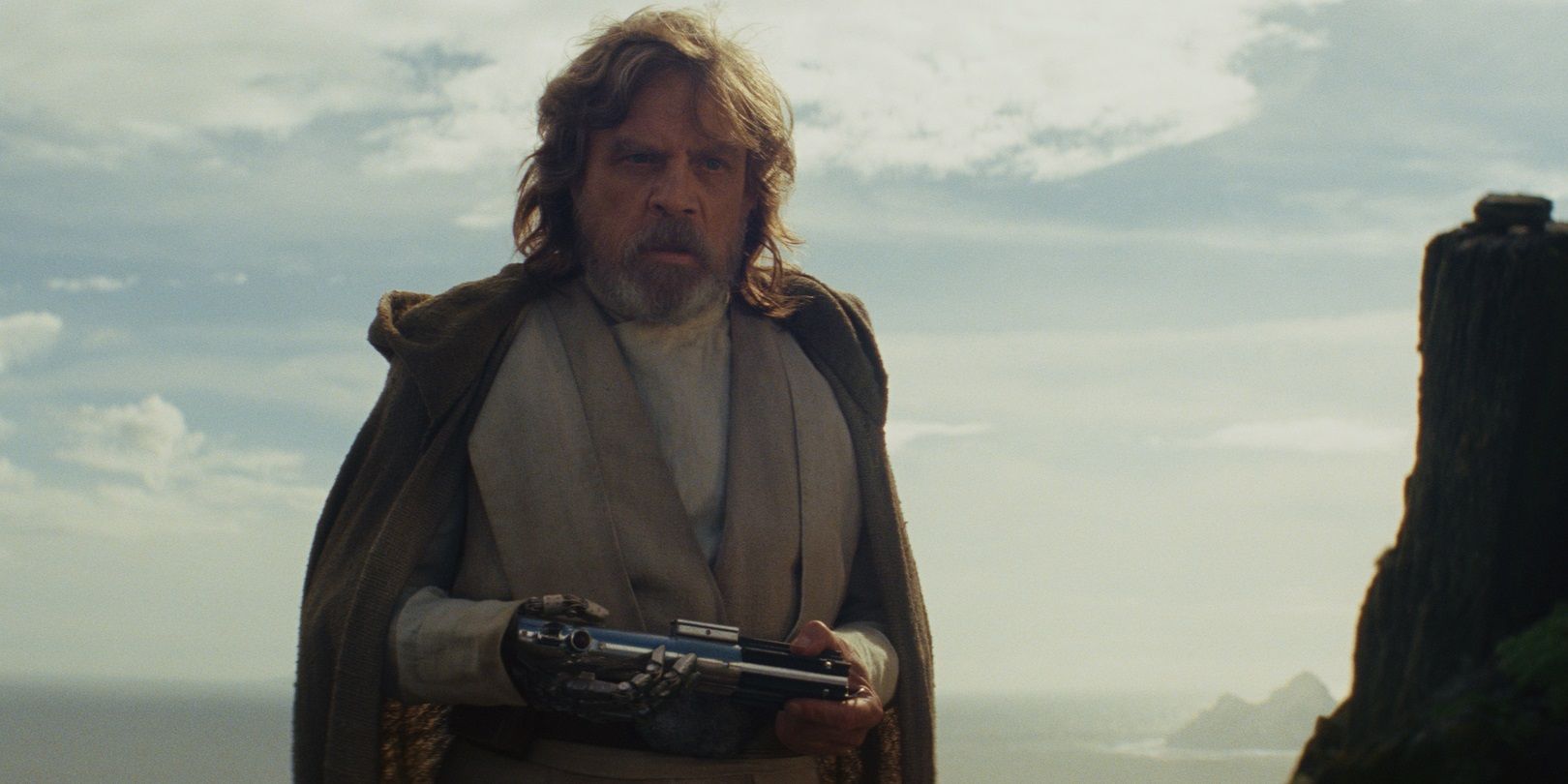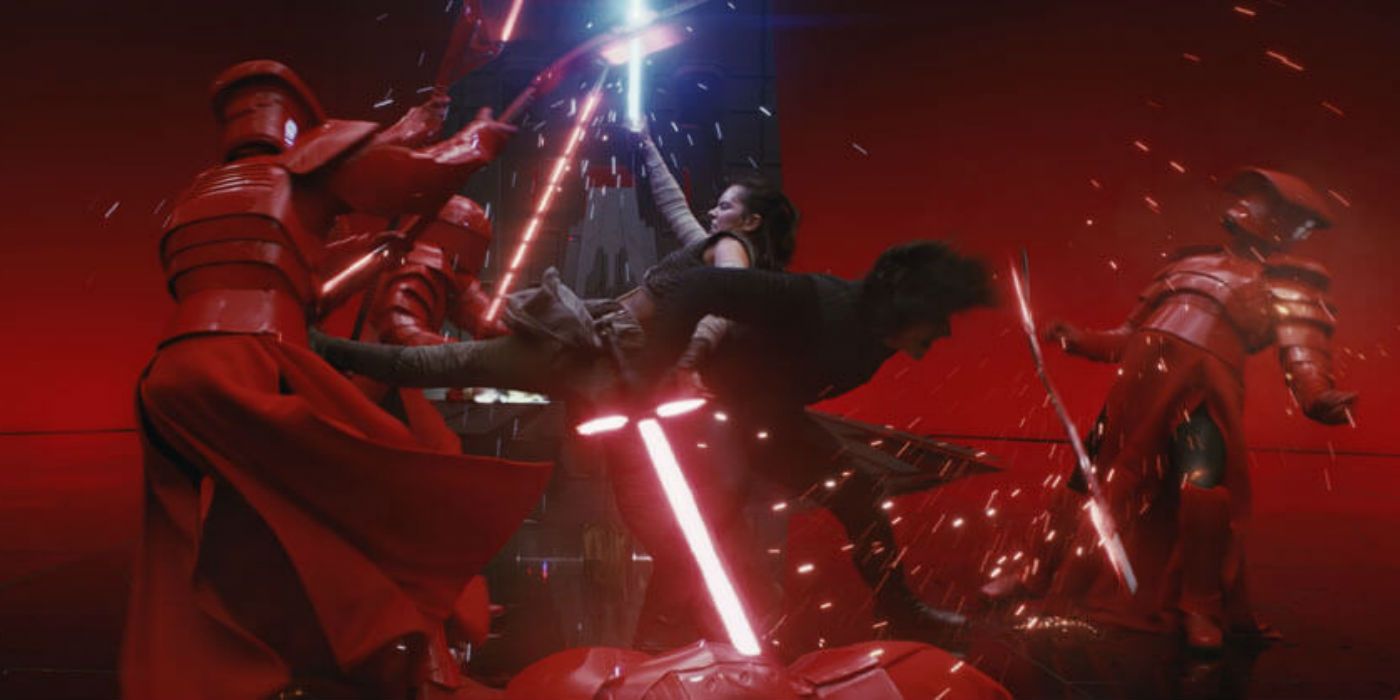
Even several years after its release, Star Wars: The Last Jedi is still proving controversial and divisive, which highlights just how misunderstood the Star Wars movie is. When it was released in 2017, The Last Jedi quickly became polarizing, to put it mildly. While critics were largely enamored with Rian Johnson's film, the Star Wars fandom was broken by the movie, for a variety of reasons.
While there were plenty of bad faith takes on the debate, there were some more legitimate criticisms of the movie, ranging from its handling of Luke Skywalker to how it addressed lingering plot threads from Star Wars: The Force Awakens, such as the death of Supreme Leader Snoke and the reveal of Rey's parentage. Mileage may vary on its many elements and whether it was a masterpiece or a disaster (with seemingly little room for anything in between), but what's perhaps most surprising is just how much milage there has been in discussing it.
The Last Jedi has been derided, defended, and debated countless times over since release, with new stories, releases (like the similarly divisive Star Wars: The Rise of Skywalker), and controversies often dragging it back into the limelight. That speaks, in part, to just how challenging a movie it is, as well as how vocal parts of the Star Wars fanbase can be. By the same token, though, it also shows that The Last Jedi proves divisive because of what people often think it's doing or saying, rather than its actual intent.

If you've been on the internet over the past four years, then chances are you've never been far from a debate about Star Wars: The Last Jedi. The movie is often being discussed in some way, but it sparked greater controversy and division when it started trending on Twitter on July 31, 2021, following a thread from user @pegobry about Luke Skywalker and the ancient Jedi texts, which Yoda dismisses as "page-turners they are not." This gained further traction when it was backed-up by J.D. Vance, the Hillbilly Elegy author who is running for U.S. Senate election in 2022, and then kickstarted further debate over both the scene in question and the movie's quality and messages more broadly.
In terms of a specific scene, the issue taken is with how it acts so dismissively of the Jedi Order, with the ancient Jedi texts, believed to be so important, reduced to little more than a punchline and ostensibly considered worthy of being burned. The viewpoint also goes that this is part of how The Last Jedi "ruined" both Yoda and Luke, with each of them supposedly betraying what they previously represented. That feeds into one of the more common critiques of the movie as a whole, which is its portrayal of Luke, once the galaxy's biggest hope and greatest hero, as a cranky old hermit who believes "it's time for the Jedi to end." The Jedi texts sequence is a key part of Luke's journey in the movie, and a good representation of the divide in the fandom over The Last Jedi, because it highlights some issues with the perception of Luke as a betrayal.

In a rather direct way, the controversy and division re-ignited by the aforementioned Tweet was a misunderstanding, as it leant on the notion that the Jedi texts were indeed destroyed by Yoda - which, of course, is not what happened. Rey keeps the texts with her, which is knowingly hinted at by Yoda's Force Ghost in the scene, as he says: "...that library contained nothing that the girl Rey does not already possess." Of course, a correction was issued, with the broader point being how The Last Jedi acts dismissively of the Order whether or not the books were actually burned. It's fundamentally not true, given they are kept by the saga's new hero, and that is where the real problem with perception of Star Wars: The Last Jedi lies. Throughout the movie, there are two key points of view presented by main characters, both of which are often brought up by the film's detractors: Luke's arc of wanting the Jedi Order to end, and Kylo Ren's line "let the past die."
In terms of the latter, it should be pretty clear that "let the past die" is not The Last Jedi's mission statement, since it comes from the main villain. That would instead suggest that viewers are not meant to support such a message - that people do need to learn from the past and their mistakes, and should not cling on to it so reverently that it hurts the present or the future, but that also there is a lot of worth and value to be remembered and taken forward as well. This is reflected in Kylo's arc: whether it's the death of Han Solo in The Force Awakens, or smashing his helmet and later fighting against a Force projection of Luke in The Last Jedi, the villain consistently tries and fails to defeat the past. It's hardly a commentary that Star Wars needs to completely forget the past to survive.
Luke's arc even better realizes this. It's true that he starts out the movie this way, seeing that the Jedi had failed, including himself. But Luke wrongly believed this meant the Jedi Order needed to end, rather than to evolve. It's an understandable takeaway, given all he had witnessed - he is completely right when looking at how the Jedi's dogma and hubris led to its downfall, and the mistake was trying to build the Order back in the same image of Yoda before him. The Last Jedi is a movie defined by failure - that of the Jedi, and of Luke himself - and coming to learn from that. It's a point Luke reaches by the end, taught by Yoda himself, no less, and by the burgeoning powers of Rey. As the former Jedi Grandmaster sagely advises, failure is "the greatest teacher," which, in essence, also means that the past is the greatest teacher too.
This approach to what came before is deeply embedded in Star Wars: The Last Jedi. While The Force Awakens truly felt like a Star Wars movie in spirit and tone, and The Rise of Skywalker heavily relied on nostalgia and iconography from the franchise, The Last Jedi is the sequel that best understands and uses the core themes of the franchise: failure, family, sacrifice, hope, love, and the attempts by good to triumph over evil. There are all elements intrinsic both to The Last Jedi's story and Star Wars as envisioned by George Lucas back in the 1970s. That is why Luke's arc comes full circle, from the farmboy staring out at the horizon to arguably the greatest Jedi who ever lived, watching the sunset as he becomes one with the Force. And it's why Rey being a nobody is so powerful: Star Wars started out not as the story of one powerful family, but that anyone could be a hero, even if they're an orphan from a forgotten desert planet. That the way The Last Jedi uses these in its story is somehow seen as Rian Johnson condemning, criticising, or even killing the franchise speaks to a larger problem still.

Depending on which side of the fence one sits, then it can be easy to argue for Star Wars: The Last Jedi's strengths and weaknesses. Its twists and subversions could be exciting elements, or a complete failure to build upon what came before. Its character arcs are challenging because that is how people grow, or perhaps it goes against what everyone thought they knew (and even if that's true, whether it's an inherently bad thing is another argument in and of itself). The reason, of course, that this Star Wars movie is so misunderstood is that no one will ever agree on what Star Wars is in the first place. It is many things to many different people, spanning ages, social backgrounds, ethnicities, political views, genders, when they became a fan, and more. For instance, one person can look at Star Wars and see Lucas' politics clearly on display, and another insists that Star Wars should be apolitical.
This is an issue that's long been prevalent in Star Wars - it's one reason why the Expanded Universe became messy and its quality and stories could differ so wildly, and it's apparent in the sequel trilogy too: J.J. Abrams and Rian Johnson seemingly have different notions of what a Star Wars movie should be. When that's then extrapolated across millions of fans, a minority of whom are incredibly vocal dissenters (which applies not to anyone with a negative opinion, but those areas that turned toxic and nasty online), then it's even clearer to see how the problems manifest. Star Wars: The Last Jedi was likely always going to be a difficult movie to get right and would never please everyone - it's too big a blockbuster, and was coming after two years of The Force Awakens theories. But when it's a movie that offers fundamental challenges to the history of Star Wars, its fans, and what the franchise should be - even if, ultimately, its core takeaway is a celebration of the saga's heroes and an offering of hope for the future - then it maybe isn't too surprising that it's so misunderstood and divisive.
from ScreenRant - Feed https://ift.tt/3A1EwIn

No comments: